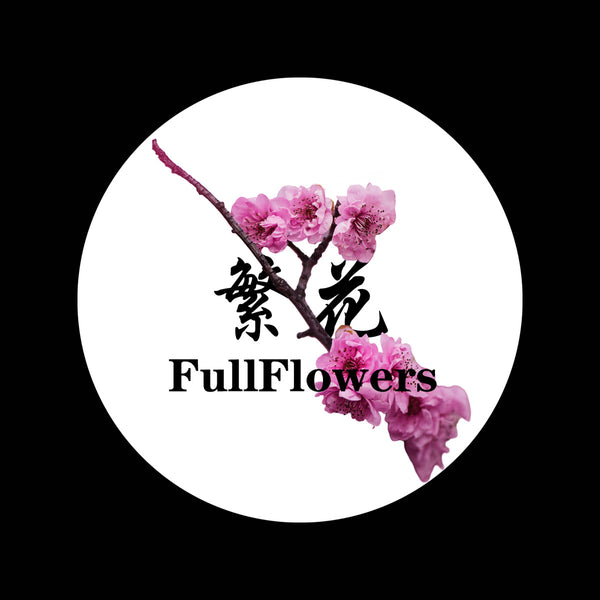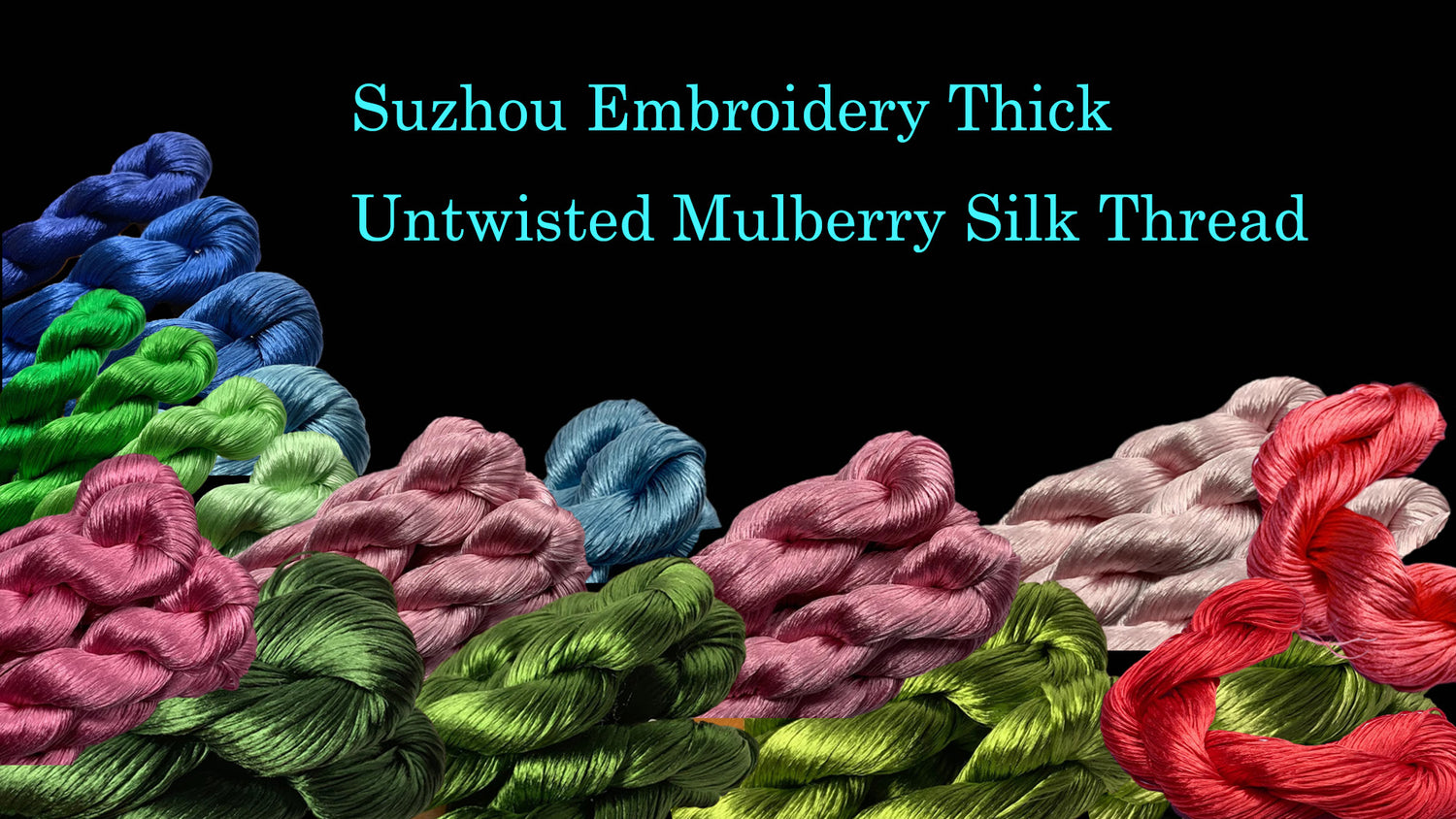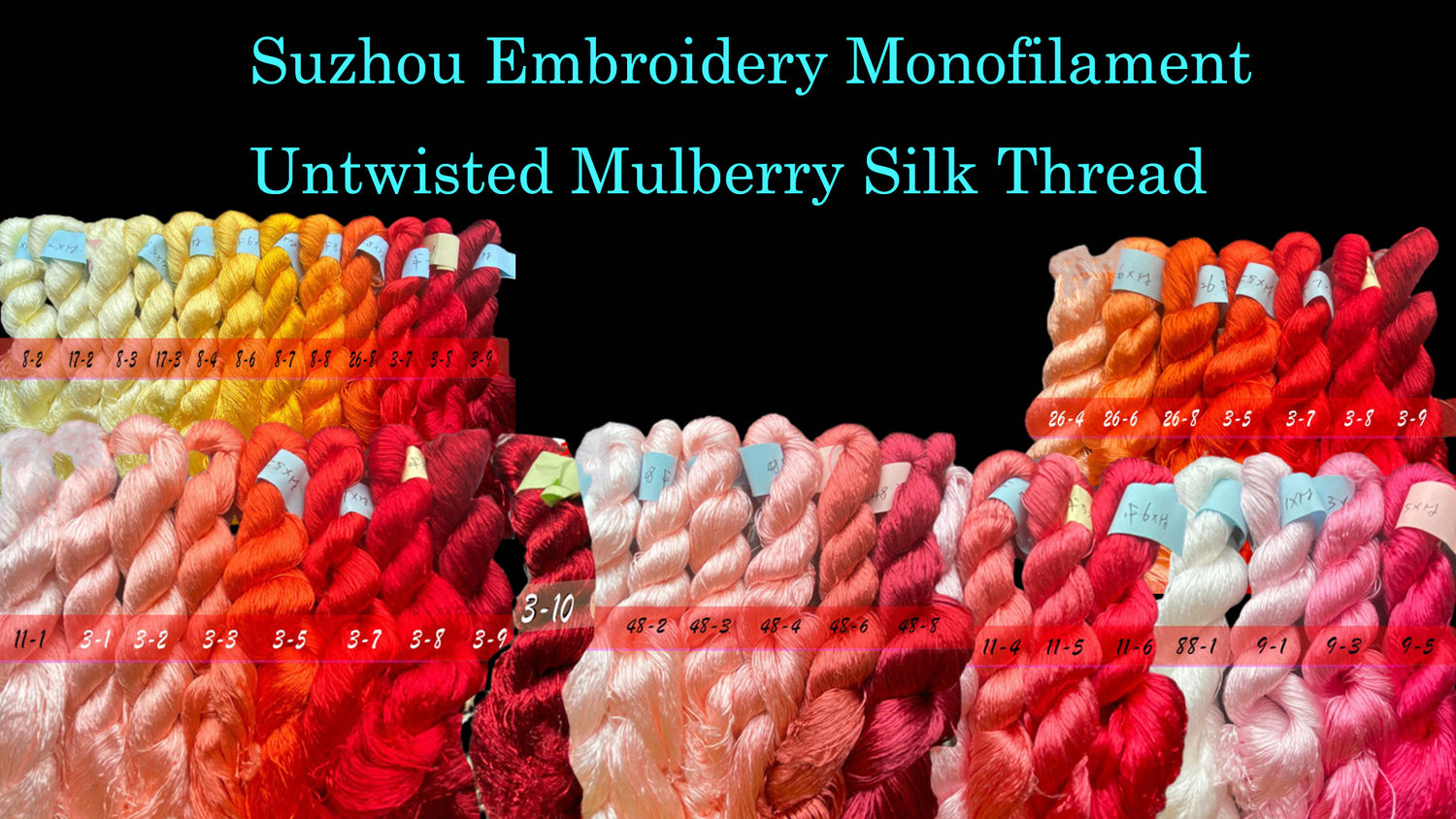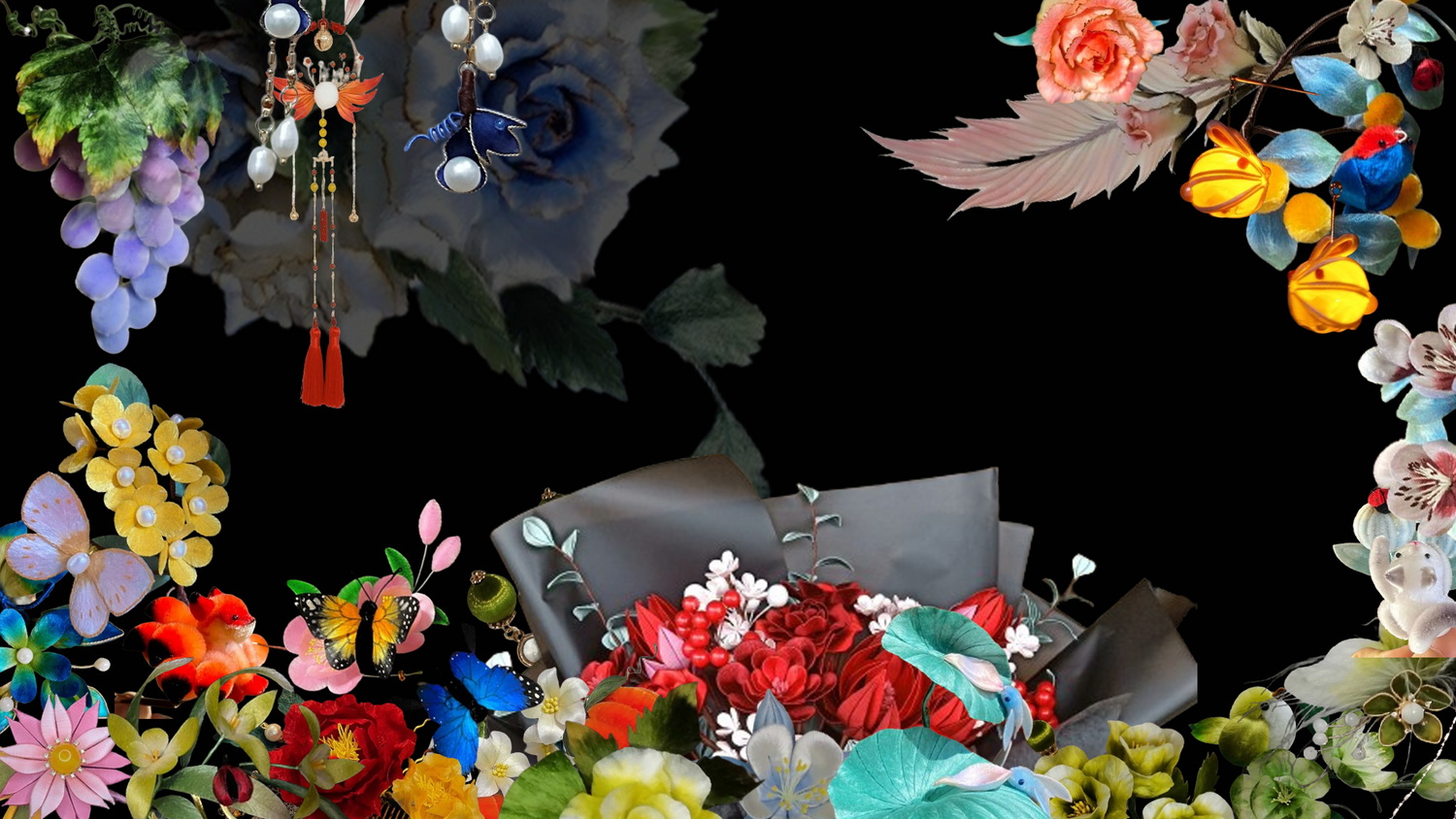
Classification of Ronghua(Velvet Flower) - Thick Velvet Strip Style
Share
Ronghua(Velvet Flowers) are mainly divided into four major categories: velvet ball style, thick velvet strip style, thin velvet strip style, and flat clamp style. These four major categories are further divided into several subcategories.
Usually, artists will use multiple techniques according to their needs in a work, and will freely adjust according to the shape of the work. The techniques of these four major categories in the combing and twisting stages are similar, and detailed tutorials have been introduced in previous articles, so they will not be repeated here. The techniques after twisting are different for each category, so our later tutorials will be separated.
The thick velvet strip style is also called the furry velvet style or the fat velvet style, usually made with Suzhou embroidery thread (including ordinary Suzhou embroidery thread, micro-twisted silk thread, non-twisted silk thread, thickened non-twisted silk thread).
Suzhou embroidery thread is more delicate and has a better gloss, so the products made are delicate and chubby, which is quite cute. It is usually used to make petals and drama headdresses, and sometimes it is also used to make pumpkins, pomegranates, leaves, etc. In ancient China, it was mainly used to make headdresses for noble girls.
Below are some examples:

The petals of the chrysanthemum in the picture above use the thick velvet strip technique (the material is Suzhou embroidery thread), and the leaves use the flat velvet technique (the material is Hunan embroidery thread). The chrysanthemum made of thick velvet strip is stronger than the thin velvet strip, and it has more girlish feeling.

The red ball in the picture above uses the velvet ball technique (the material is raw silk), the main body of the lion dance uses the thick velvet strip technique (the material is Suzhou embroidery thread), the blue decoration on the top of the lion dance head and the nose part, the white and yellow round decorations around the eyes, and the yellow decoration on the eyebrow center all use the thin velvet strip technique (the material is Hunan embroidery thread).

The pink decoration in the picture above uses the thick velvet strip technique (the material is Suzhou embroidery thread).

The plum blossom in the picture above uses the thick velvet strip technique (the material is Suzhou embroidery thread).

The pumpkin and gourd in the picture above use the thick velvet strip technique (the material is Suzhou embroidery thread). The flowers and leaves use the flat velvet technique (the material is Suzhou embroidery thread).

The flower in the picture above uses the thick velvet strip technique (the material is Suzhou embroidery thread), and the leaf uses the flat velvet technique (the material is Hunan embroidery thread).

The body of the bird in the picture above uses the velvet ball technique (the material is raw silk), the feathers and tail of the bird use the flat velvet technique (the material is Hunan embroidery thread), the pumpkin uses the thick velvet strip technique (the material is Suzhou embroidery thread), and the pumpkin leaves use the flat velvet burning technique (the material is Hunan embroidery thread).

The flower and leaf in the picture above both use the thick velvet strip technique (the material is Suzhou embroidery thread).

The hydrangea in the picture above uses the thick velvet strip technique (the material is Suzhou embroidery thread), and the leaves of the hydrangea use the thin velvet strip technique (the material is Suzhou embroidery thread).








